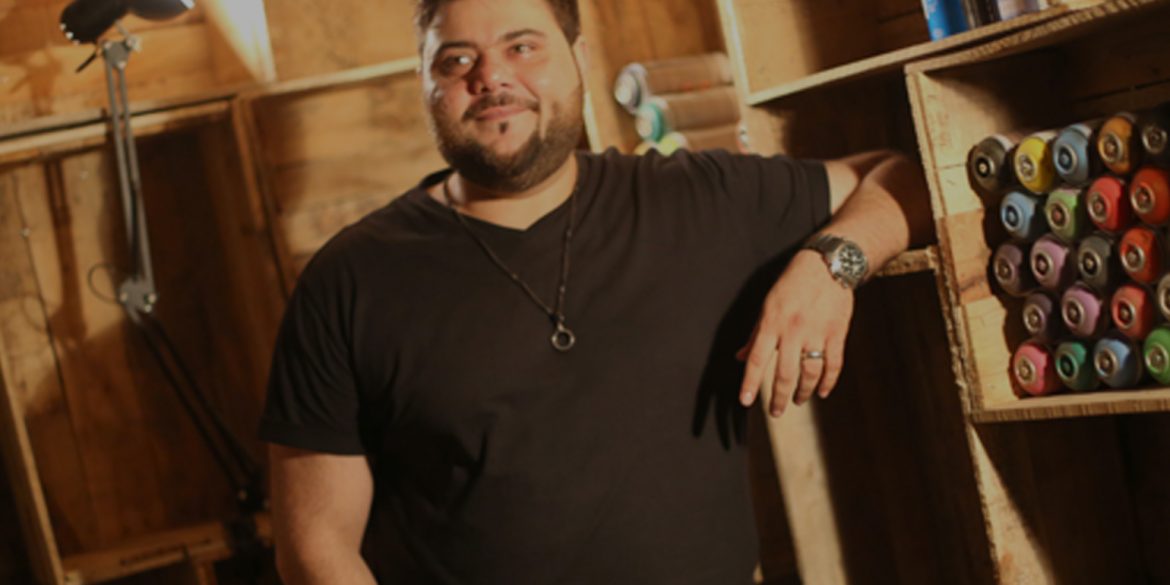Any conversation with Riyaaz Amlani, whether on the subject of business or food, inevitably leads to music. As CEO and managing director of Impresario Hospitality, he’s responsible for wildly successful restaurant concepts such as Mocha, Salt Water Cafe, Smoke House Deli, and most recently, Social Offline. Charting the history of each of these brands, it’s not only the quality of food and service that strikes you, but the fact that each one represents a first. “A large part of our journey has been in response to changing consumer patterns. Mocha was actually a response to a time when there was no place for people to hangout. There was one Barista on Chowpatty, sort of a bad Starbucks knockoff. The need was rather glaring but we did not want to do a cut-paste Starbucks. So we took inspiration from a Turkish Qahveh Khaneh, a coffee house, and we contemporised it.”
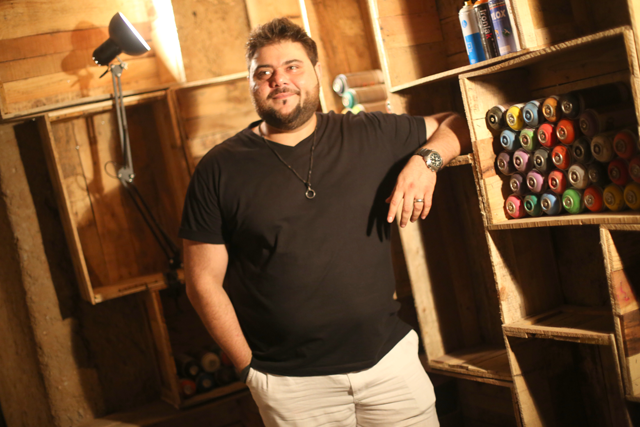
At the heart of each of Impresario’s restaurants are the minute details that go into creating that perfect chord. Over the years, a unique partnership and close friendship has emerged, between Riyaaz Amlani, Executive Chef Gresham Fernandes, and The Busride’s Ayaz Basrai, who’s designed many of the restaurants. The three approach food from their own distinct perspectives – a combination of education, upbringing and personal interests – but what they share is an almost obsessive commitment towards experimenting and furthering the dining culture in India, and of course, a love for music.
We sat down with Riyaaz at Impresario’s sprawling, loft-style office above the iconic American Express Bakery in Byculla, and also spoke to Gresham and Ayaz about what makes a great restaurant work.
How do you go about creating an Impresario restaurant?
For me everything – the food, the music, lighting, the cutlery and crockery – all have to convey a story. That’s primarily my job – to marry the design and the food and all the other elements that go into creating a restaurant experience. Everything has a tonality; we won’t use the same cutlery in Salt Water Cafe, Smoke House Deli or Social, it will all be different. These choices depend on simple things like how you like to hold a cup of coffee, for example, whether you like to put your pinky up and drink and that makes you feel differently, or if you like to place your hand around a mug, it gives you a different experience. Drinking from a double-walled glass is a much more modern expression.
Restaurants have a payoff, right? There are those that make you feel romantic, those that make you feel elegant or celebratory, that make you feel connected and human, casual and relaxed. That kind of mood has to be designed and maintained.
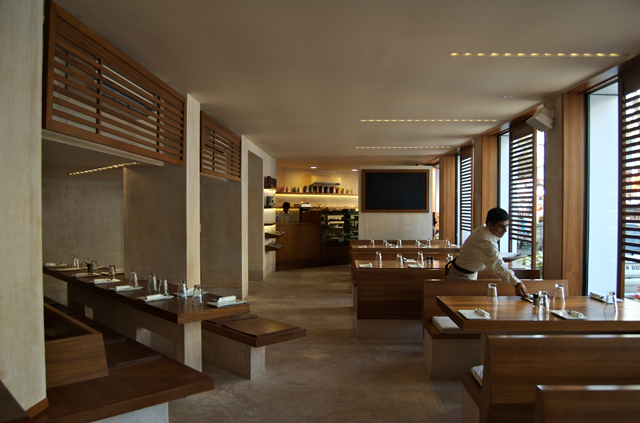
As a restaurateur, when you’re eating something you start to think about the context in which this meal could be better. You see something and you file it away and once you start creating a restaurant, all these things start coming back and you assimilate and pour it out into a restaurant. It sparks from music – when I’m giving a brief to an architect, I do show them references, and I try and play the type of music I visualise in the restaurant. It sets the mood and the tone and that continues as a common thread that ties everything together.
Pretty early on we realised how important design is in the experience, especially when it comes to people coming in for the environment, not just the food and drink – a bit of both. We are not in the food commodity business. Design is very integral to what we do, we have a dedicated experience design team, who work across architecture to interiors to designing props to cutlery and crockery and plates, this forms a large part of our business.
Salt Water Cafe, Smoke House Deli and Social have multiple locations now. With chains, do you run the risk of diluting a great concept?
It’s a double-edged sword. If not handled properly it could dilute the concept. When you’re not there on a day-to-day basis, you’re losing some sense of that deeper connection with the customer. It could be argued that a chain does not have soul. However by creating a chain, you have access to better products, better manpower, you’re able to give your own people growth and more responsibility. So it’s really a question of whether you divide your love or multiply your love.
If handled well, it works in your favour, but if handled badly – if you’re just going bang bang bang, rolling out rolling out – you come up with a kind of ‘minimum level of offering’, which say, McDonald’s does. And I’m just going to bang it out and focus on creating ad budgets and then really push the product instead of getting people to pull to you. That has worked, but there is a way of expanding while keeping the soul integral to the product.
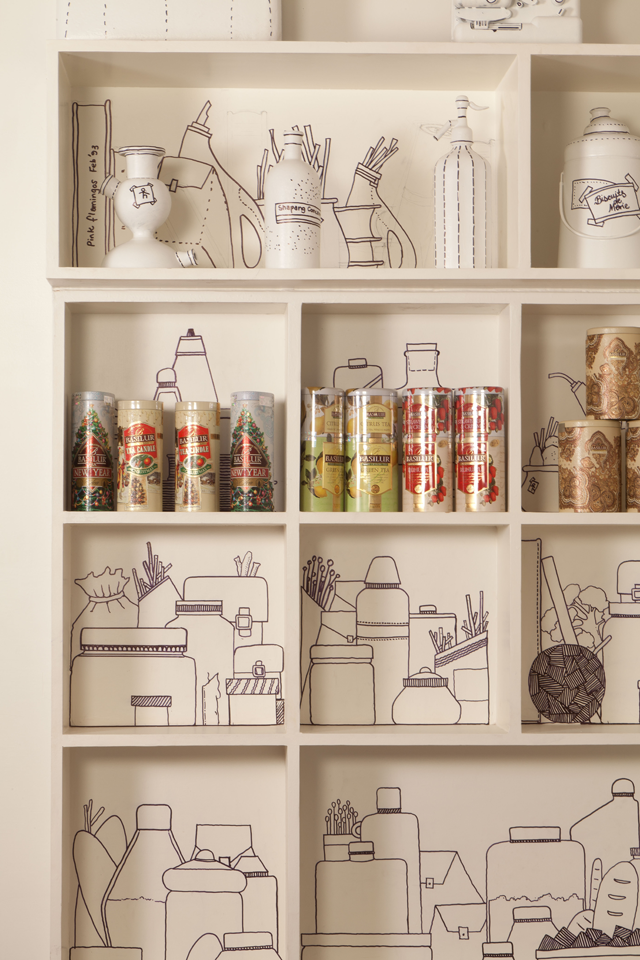
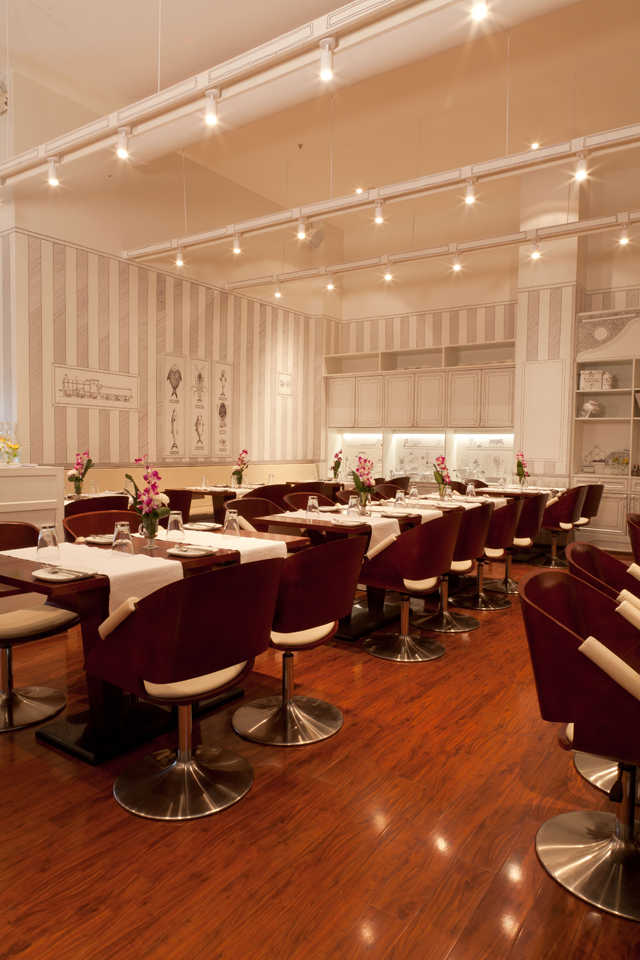
I think this comes from paying attention to details, giving more ownership to the people who are there, giving them more vestige by allowing them to be the interface that you were going to be if you were personally there. Am I the best person to look after all these details? Maybe not. By allowing somebody else to play that role it’s possible to scale and still have soul. It’s just a lot more work, because you’re designing everything from scratch all the time. But I think that’s also what keeps a brand moving forward; monotony should not set in.
So even with Mocha, no two Mochas were the same, no two Smoke House Delis will be the same, or Socials. The hand drawings on every Deli are different. That’s the most rewarding part of our work. Me, Ayaz and Gresh really enjoy the process of discovery that comes with exploring adjacencies, doing research, learning some new things or traveling. I would be really hard-pressed to say, “Ok I’m opening 30 new restaurants, I need 30 times 100 of those chairs.” Place the order, and when it’s delivered, put them everywhere. We wouldn’t enjoy that school of restaurants.
What has it been like working with Ayaz Basrai and Gresham Fernandes over the years?
Gresham was working with another chef of mine in Mocha. Gresh was just starting out, and I think he was working at the Leela’s [the hotel chain] for a while. He was a young, punk kind of a guy and I brought him to work with Viraf [Patel] at Salt Water Grill. Over time I started realising that Gresham is one of those people who are obsessed. They are totally besotted by their own craft. When he’s not cooking, he’s thinking about what he’s going to cook, and when he’s not cooking and thinking, he’s reading.
He has a very scientific approach to building and pairing flavours. He can construct flavours in his head. His food is very original, he doesn’t want to copy or emulate someone. As we kept working together, I understood him a lot more and I try to give him a platform for what he wants to do. It works out well for both of us because he brings something to the food which other people do not. There’s a genuine thought and philosophy behind it, which is nice. My job becomes to give context to his philosophy in a much more ‘customer-friendly’ manner.
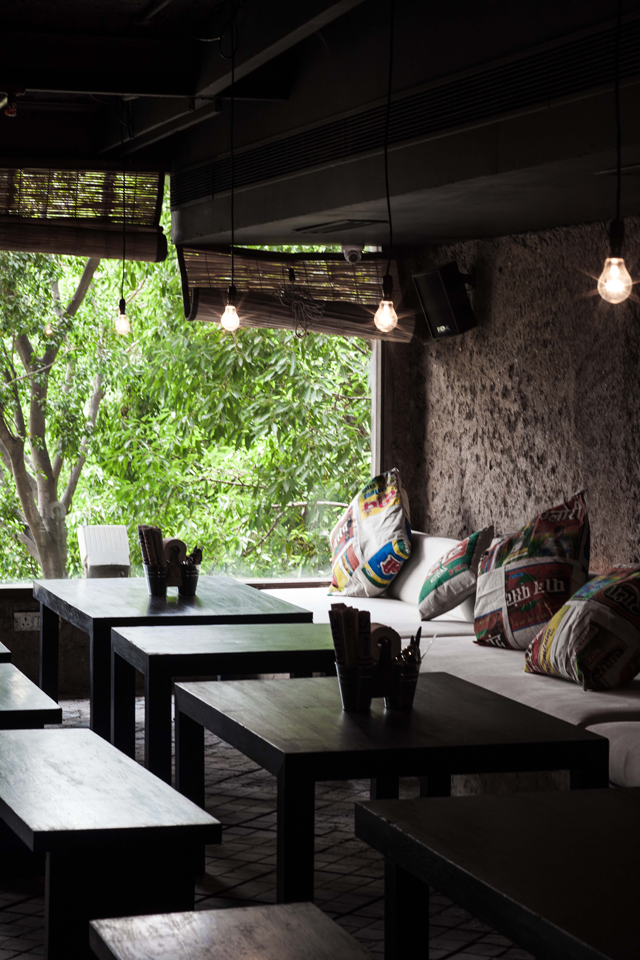
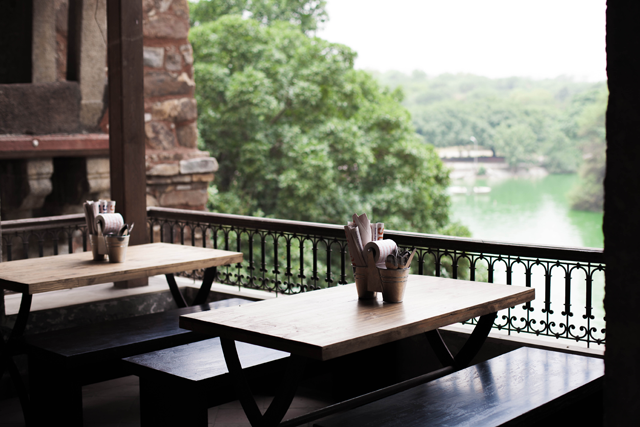
Ayaz was introduced to me by my friend, Nitesh Mohanty. He had not done too many fine dining restaurants then, but I liked his sensibility and at that time we were both into graphic novels, and that whole process of design came about through a series of jamming. I like hanging out with him – Me, Gresh and Ayaz used to just hang out all the time and our ideas, conversations, insights helped create a more holistic restaurant. Gresh suddenly became very interested in design, and it was not just about food, and Ayaz got a little bit of insight into what customers look for at a more minute level, in terms of energy flow and how people react and how the lighting should be. It became a very seamless thing, and creating new restaurants became a lot of fun.
What do you take away from failures — Restaurants like Smoke House Room, that didn’t work out?
I personally thought that Smoke House Room was my best achievement when it comes to restaurants. I spared no expense, Gresham outdid himself with the meals he was cooking, they were sensational. However at that point of time, people were just not ready to accept or did not have that kind of exposure that people have today with food. My greatest takeaway was – if I spend money to create a delightful experience, ‘toh kya kiya?’ (What’s the big thing that you’ve done?) Why only go after the cognoscenti or the intelligentsia or pretentious? Why not have a product that can appeal to somebody who’s just gotten into college or a six-year-old, to a 50-year-old aunty who’s living in Ghatkopar or Virar? What can I do which can have a much wider appeal and how can I do this without spending a lot of money?
Social was a response to Smoke House Room, at a completely different end of the spectrum. We decided, let’s take all that creativity and take away all the pretentiousness from it and come up with one thing that’s going to make everybody like it, from the hipsters to the non-hipsters. And it has really worked for us. The sum of your experiences and influences is really what makes you uniquely you. And if you manage to funnel those experiences into what you do, then your work is truly original, because then it’s honest. It’s true to you; instead of constantly looking over your shoulder, it’s coming from a deeper sense of conviction and comfort at the same time.
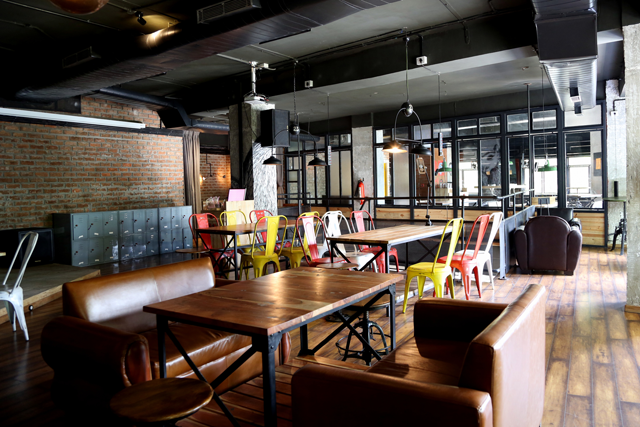
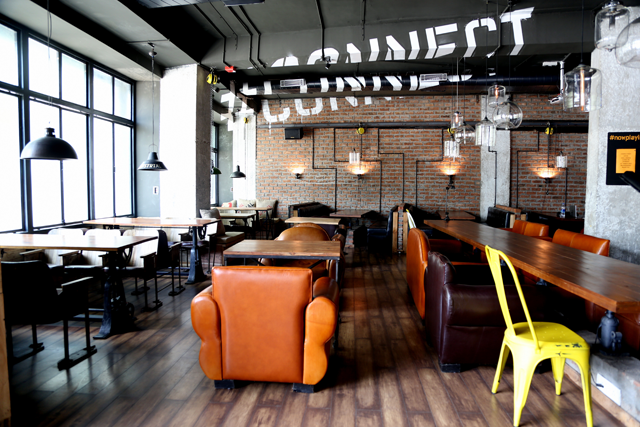
What’s the future of food in India?
Food is radiating in all directions, and that’s great. There is now a demand for quality, casual, for ethnic, for exotic, for the clichéd and banal. There’s a wider range of restaurant possibilities that are opening up. People would now be experimenting with local food, vegan food, there’ll be people doing health, or out-andout decadent. I think the quality of offering antes up, people are raising their stakes up a bit. It’s a good time. We are all driving each other forward, which is a good thing.
**
A version of this article was published in Kyoorius 25.

